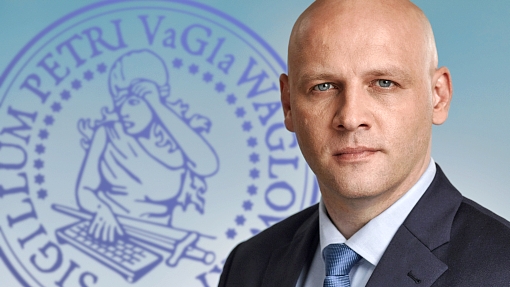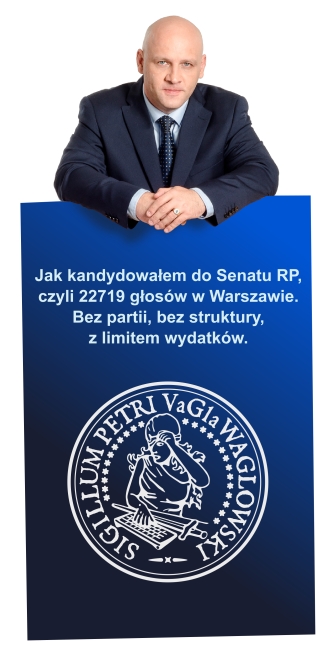Dziś dyskusja nad Rezolucją Parlamentu Europejskiego w sprawie ACTA, jutro głosowanie
W Parlamencie Europejskim zapowiada się potencjalnie burzliwa dyskusja na temat negocjacji w sprawie Anti-Counterfeiting Trade Agreement (por. dział ACTA). Deputowani podpisywali się wczoraj pod rezolucją parlamentarną zatytułowaną "on Transparency and State of Play of ACTA negotiations", ale po wczorajszych negocjacjach między grupami parlamentarnymi ustalono treść wspólnej rezolucji, pod którą podpisali się przedstawiciele praktycznie wszystkich (bo bez jednego, mającego 9 europosłów) ugrupowań reprezentowanych w Parlamencie Europejskim. Te działania zostały zainicjowane przez grupę eurodeputowanych po tym, jak do Sieci "wyciekł" przekazany Radzie UE 12 lutego, a przygotowany w Komisji Europejskiej dokument dotyczący stanowiska negocjacyjnego w sprawie ACTA. Dziś ma się odbyć dyskusja nad wspólną rezolucją parlamentarną, jutro zaś głosowanie.
O wycieku dokumentu można przeczytać w wielu źródłach, ale proponuję sięgnąć do tekstów ACTA: nowe fakty, nowe obawy (tam również link do samego dokumentu (PDF)). Omówienie materiału można również przeczytać w tekście Dziennika Internautów: ACTA: Kolejny przeciek odkrywa stanowiska stron.
Kolejne wycieki i rosnące zaniepokojenie społeczne związane ze sposobem prowadzenia tego typu negocjacji prowokują administrację Unii Europejskiej do pewnych działań. Oto Dyrektoriat Generalny Handlu Komisji Europejskiej (Directorate General for Trade of the European Commission) organizuje 22 marca spotkanie konsultacyjne w sprawie ACTA.
Równolegle, 24 lutego skierowano w imieniu grupy posłów interpelację do Komisji:
Przy wielu okazjach Parlament wzywał Komisję i Radę do zapewnienia mu jak najszerszego dostępu do dokumentów w sprawie ACTA, zwłaszcza w swoich sprawozdaniach z dnia 18 grudnia 2008 r. (sprawozdanie G. Susty P6_TA(2008)0634, ust. 14 i 28) i z dnia 11 marca 2009 r. (sprawozdanie M. Cashmana P6_TA(2009)0114, którego ust. 26 brzmi: „Komisja powinna natychmiast upublicznić wszystkie dokumenty dotyczące toczących się międzynarodowych negocjacji w sprawie umowy handlowej dotyczącej zwalczania obrotu towarami podrobionymi.”).
W swojej rezolucji z dnia 9 lutego 2010 r. w sprawie porozumienia ramowego z Komisją (P7_TA(2009)0009) Parlament zażądał niezwłocznego i pełnego informowania go na każdym etapie negocjacji w sprawie umów międzynarodowych, szczególnie w dziedzinie handlu oraz innych negocjacji wymagających procedury zgody, w celu nadania właściwego skutku art. 218 TFUE. W dniu 27 stycznia 2010 r. Komisja zapewniła o swoim zaangażowaniu na rzecz ściślejszej współpracy z Parlamentem w kontekście tej rezolucji.
Kiedy Komisja udzieli Parlamentowi dostępu do wszystkich zasadniczych tekstów dotyczących ACTA, a w szczególności do mandatu negocjacyjnego Rady w sprawie ACTA, protokołów posiedzeń negocjacyjnych ACTA, projektów rozdziałów ACTA oraz komentarzy uczestników negocjacji na temat projektów rozdziałów?
Czy Komisja przeprowadziła ocenę wpływu wdrożenia ACTA na handel elektroniczny w UE i na całym świecie? Jak Komisja zamierza zagwarantować, że wprowadzenie w życie przepisów ACTA dotyczących internetu będzie w pełni zgodne z dorobkiem prawnym UE, i jak zamierza ona rozwiązać kwestię jakichkolwiek niezgodności?
Czy Komisja zgadza się, że Parlament powinien uzyskać dostęp do dokumentów w sprawie ACTA przed wejściem w życie nowego porozumienia ramowego?
Eurodeputowani zaczęli zbierać podpisy pod projektem rezolucji, "wymierzonej przeciwko potajemnym negocjacjom ws. ACTA" - jak napisał wczoraj serwis TVN24.pl w tekście Porozumienie ACTA zniewoli internet?. TVN24 tak to zbieranie podpisów relacjonuje:
Jeśli pod oświadczeniem podpisze się większość członków Parlamentu, przewodniczący informuje o tym Parlament i umieszcza nazwiska sygnatariuszy w protokole, a oświadczenie publikuje jako tekst przyjęty. Podpisy trzeba zebrać w ciągu trzech miesięcy od wpisania do rejestru - do 17 czerwca br. Według stanu na wieczór 8 marca figuruje pod nim 8 podpisów.
Jest też link do Pisemnej deklaracji w sprawie braku przejrzystego procesu i potencjalnie budzącej zastrzeżenia treści w odniesieniu do umowy handlowej dotyczącej zwalczania obrotu towarami podrobionymi (ACTA) (DCL(2010)0012), w której czytamy:
OŚWIADCZENIE PISEMNE
zgodnie z art. 123 Regulaminu
w sprawie braku przejrzystego procesu i potencjalnie budzącej zastrzeżenia treści w odniesieniu do umowy handlowej dotyczącej zwalczania obrotu towarami podrobionymi (ACTA)
Françoise Castex, Zuzana Roithová, Alexander Alvaro, Stavros Lambrinidis
Termin: 17.6.20100012/2010
Oświadczenie pisemne w sprawie braku przejrzystego procesu i potencjalnie budzącej zastrzeżenia treści w odniesieniu do umowy handlowej dotyczącej zwalczania obrotu towarami podrobionymi (ACTA)
Parlament Europejski,
– uwzględniając art. 123 Regulaminu,A. mając na uwadze trwające negocjacje w sprawie umowy handlowej dotyczącej zwalczania obrotu towarami podrobionymi (ACTA),
B. mając na uwadze rolę współdecyzyjną Parlamentu Europejskiego w sprawach handlowych i jego dostęp do dokumentów negocjacyjnych gwarantowane traktatem lizbońskim,
1. uważa, że proponowana umowa nie powinna pośrednio nakładać obowiązku ujednolicenia unijnego prawa autorskiego, prawa patentowego ani prawa znaków towarowych; należy przestrzegać zasady pomocniczości;
2. oświadcza, że Komisja powinna niezwłocznie upublicznić wszystkie dokumenty odnoszące się do prowadzonych negocjacji;
3. jest zdania, że proponowana umowa nie powinna nakładać ograniczeń na rzetelny proces sądowy ani osłabiać praw podstawowych takich jak wolność słowa i prawo do prywatności;
4. podkreśla, że w przypadku istnienia środków cywilnych oceny zagrożeń gospodarczych i zagrożeń dla innowacyjności należy dokonywać przed wprowadzeniem sankcji karnych;
5. uważa, że usługodawcy internetowi nie powinni ponosić odpowiedzialności za dane przekazywane lub przechowywane w ramach świadczonych przez nich usług w stopniu, w jakim oznaczałoby to uprzednie kontrolowanie lub filtrowanie danych;
6. zauważa, że wszelkie środki zmierzające do zwiększenia uprawnień w zakresie kontroli granicznej i konfiskaty towarów nie powinny ograniczać powszechnego dostępu do legalnych, niedrogich i bezpiecznych leków;
7. zobowiązuje swojego przewodniczącego do przekazania niniejszego oświadczenia wraz z nazwiskami sygnatariuszy Komisji, Radzie i parlamentom państw członkowskich.
Porządek dzienny posiedzenia plenarnego Parlamentu Europejskiego może przewidywać, że po oświadczeniach Rady, Komisji i Rady Europejskiej (Artykuł 110) oraz pytaniach ustnych do Rady i Komisji (Artykuł 115) nastąpi głosowanie nad projektem rezolucji. W przypadku ACTA przewidziano takie głosowanie.
Wczoraj pojawił się Projekt Rezolucji PE 439.696 złożony w odpowiedzi na pytanie wymagające odpowiedzi ustnej B7-0020/2010 zgodnie z art. 115 ust. 5 Regulaminu w sprawie przejrzystości i aktualnego stanu negocjacji umowy handlowej dotyczącej zwalczania obrotu towarami podrobionymi (ACTA) oraz - wcześniej - Projekt Rezolucji PE 439.695 złożony w odpowiedzi na pytania wymagające odpowiedzi ustnej B7-0020/2010 i O-0026/2010.
To również nie jest jeszcze koniec. W tekście Common EU Parliament resolution on ACTA tabled, który opublikował Christian Engström, deputowany z Partii Piratów, można przeczytać, że dziś odbędzie się debata na temat Wniosku w sprawie wspólnego projektu rezolucji parlamentarnej dotyczącej ACTA. Jest to wynik wczorajszych negocjacji między parlamentarzystami, w wyniku którego pod wspólnym tekstem podpisali się przedstawiciele wszystkich (poza jednym) ugrupowań parlamentarnych (negocjujący nie pytali o stanowisko Europe of Freedom and Democracy - EFD, które to ugrupowanie ma 9 członków).
Treść uzgodnionego projektu wspólnej Rezolucji prezentuję poniżej (jeszcze nie widzę materiału na europejskiej stronie, poświęconej Projektom rezolucji poddawanym pod głosowanie na posiedzeniu plenarnym, a poniżej cytowany projekt nie ma nawet sygnatury):
MOTION FOR A COMMON RESOLUTION
pursuant to Rule 110 of the Rules of Procedure
on Transparency and State of Play of ACTA negotiations
Tokia SAIFI, Daniel CASPARY, Cristiana MUSCARDINI and
Georgios PAPASTAMKOS on behalf of the EPP groupKader ARIF, Gianluca SUSTA, Bernd LANGE and David MARTIN on behalf of the S&D Group
Niccolò RINALDI, Sophie IN'T VELD, Alexander ALVARO, Metin KAZAK, Marielle DE SARNEZ and Michael THEURER on behalf of ALDE group
Carl SCHLYTER, Eva LICHTENBERGER, Christian ENGSTROEM Jan-Philip ALBRECHT, Franziska KELLER and Judith SARGENTINI on behalf of the Greens/EFA Group
Syed KAMALL on behalf of the ECR Group
Helmut SCHOLZ on behalf of the GUE Group
Motion for a resolution on Transparency and State of Play of ACTA negotiations
The European Parliament,
– having regard to Articles 207 and 218 TFEU
- having regard to its Resolution of 9 February 2010 on a "Renewed Framework Agreement between the Parliament and the Commission for the next legislative term" (B7 0091/2010)
– having regard to its Resolution of 11 March 2009 on "Public access to European Parliament, Council and Commission documents (recast)" to be considered as Parliaments position in First Reading (COM(2008)0229 – C6-0184/2008 – 2008/0090(COD))
– having regard to its Resolution of 18 December 2008 on "the impact of counterfeiting on international trade" (2008/2133(INI))
- having regard to the Opinion of the European Data Protection Supervisor of 22 February 2010 on "the current negotiations by the European Union of an Anti-Counterfeiting Trade Agreement (ACTA)"
- having regard to the Charter of Fundamental Rights of the European Union, and in particular its Article 8,
- having regard to Directive 2002/58/EC of European Parliament and Council concerning the processing of personal data and the protection of privacy in the electronic communications sector, as last amended by Directive 2009/136/EC of the European Parliament and of the Council of 25 November 2009
- having regard to Directive 2000/31/EC of European Parliament and Council of 8 June 2000 on certain legal aspects of information society services, in particular electronic commerce, in the Internal Market (Directive on Electronic Commerce)
- having regard to Rule 110 of its Rules of Procedure,A. whereas in 2008 the European Union and other OECD countries opened negotiations on a new plurilateral agreement designed to strengthen the enforcement of Intellectual Property Rights (IPRs) and combat counterfeiting and piracy (Anti-Counterfeiting Trade Agreement - ACTA), and jointly agreed on a confidentiality clause,
B. whereas in its report of 11 March 2009 Parliament called on the Commission to "immediately make all documents related to the ongoing international negotiations on the Anti-Counterfeiting Trade Agreement (ACTA) publicly available",
C. whereas the Commission on 27 January 2010 assured its commitment to a reinforced association with Parliament in the terms of its Resolution of 9 February 2010 on a renewed Framework Agreement with the Commission, demanding "immediate and full information at every stage of negotiations on international agreements, in particular on trade matters and other negotiations involving the consent procedure, to give full effect to Article 218 TFEU",
D. whereas Council representatives have attended ACTA negotiation rounds alongside with Commission representatives,
E. whereas the Commission as guardian of the Treaties is obliged to uphold the acquis communitaire when negotiating international agreements affecting legislation in the EU,
F. whereas, according to documents leaked, the ACTA negotiations touch, among others, on pending EU legislation regarding the enforcement of IPRs (COD/2005/0127, Criminal measures aimed at assuring the enforcement of intellectual property rights, (IPRED-II)) and the so-called "Telecom Package", and on existing EU legislation regarding E-Commerce and data protection,
G. whereas the ongoing EU efforts to harmonise IPR enforcement measures should not be circumvented by trade negotiations which are outside the scope of the normal EU decision-making processes,
H. whereas it is crucial to ensure that the development of IPR enforcement measures is accomplished in a manner that does not impede innovation or competition, undermine IPR limitations and personal data protection, restrict the free flow of information, or unduly burden legitimate trade,
I. whereas any agreement reached by the European Union on ACTA must comply with the legal obligations imposed on the EU with respect to privacy and data protection law, as notably set forth in Directive 95/46/EC, in Directive 2002/58/EC and in the jurisprudence of the European Court of Human Rights and of the Court of Justice,
J. whereas the Treaty of Lisbon is in force since 1 December 2009,
K. whereas as a result of the entry into force of the Lisbon Treaty, the Parliament will have to give its consent to the ACTA Treaty text, prior to its entry into force in the EU,
L. whereas the Commission committed itself to provide immediate and full information to the European Parliament at every stage of negotiations on international agreements,
1. Reminds that the Commission has since the 1 December 2009 the legal obligation to immediately and fully inform the European Parliament at all stages of international negotiations;
2. Expresses its concern over the lack of a transparent process in the conduct of the ACTA negotiations which contradicts the letter and the spirit of the TFEU; is deeply concerned that no legal base has been established before the start of the ACTA negotiations and that no parliamentary approval has been asked for the mandate;
3. Calls on the Commission and Council to grant public and parliamentary access to ACTA negotiation texts and summaries in accordance with the Treaty and the Regulation 1049/2001 on Public Access to Documents;
4. Calls on the Commission and Council to pro-actively engage with ACTA partners to rule out any further negotiations of an a piori confidential nature and to timely and entirely inform Parliament about its initiatives in this regard; expects the Commission to make proposals already prior to the next negotiation round in New Zealand in April 2010 and to demand that the issue of transparency is put on the agenda of that meeting, and to refer to Parliament the outcome of this round immediately after its conclusion;
5. Stresses that, unless the Parliament is immediately and fully informed at all stages of the negotiations, Parliament reserves its right to take suitable action, including bringing a case before the Court of Justice in order to safeguard its prerogatives;
6. Calls on the Commission to conduct an impact assessment of ACTA's implementation on fundamental rights and data protection, on the ongoing EU efforts to harmonise IPR enforcement measures, and on E-Commerce, prior to any EU agreement to a consolidated ACTA treaty text, and to timely consult with Parliament about the results of this assessment;
7. Welcomes affirmations by the Commission that any ACTA agreement will be limited to the enforcement of existing IPRs, with no prejudice for the development of substantive IP law in the European Union;
8. Calls on the Commission to continue the negotiations on ACTA in order to improve the effectiveness of the IPR enforcement system against counterfeiting;
9. Urges the Commission to ensure that the enforcement of ACTA provisions - especially its provisions on copyright enforcement procedures in the digital environment - are fully in line with the acquis communitaire; demands that no personal search is undertaken at the EU borders and requests full clarification of any clauses that would allow for warrantless searches and confiscation of information storage devices, such as laptops, cell phones and MP3 players, by border and customs authorities;
10. Considers that in order to respect fundamental rights such as freedom of expression and the right to privacy, with full respect for subsidiarity, the proposed Agreement must refrain from imposing any so called "three strikes" procedures, in full respect of the decision of Parliament on article 1.1b in the (amending) Directive 2009/140/EC that calls to insert a new para 3 a to article 1 Directive 2002/21/EC on the matter of "three strikes"
11. Emphasizes that privacy and data protection are core values of the European Union, recognised in Article 8 ECHR and Articles 7 and 8 of the EU Charter of Fundamental Rights, which must be respected in all the policies and rules adopted by the EU pursuant to Article 16 of the TFEU;
12. Instructs its President to forward this resolution to the Commission, the Council and the Governments and Parliaments of ACTA negotiation participants.
Sięgnij również do materiału Dokument w ramach procedury : O-0026/2010
- Login to post comments
Piotr VaGla Waglowski

Piotr VaGla Waglowski - prawnik, publicysta i webmaster, autor serwisu VaGla.pl Prawo i Internet. Ukończył Aplikację Legislacyjną prowadzoną przez Rządowe Centrum Legislacji. Radca ministra w Departamencie Oceny Ryzyka Regulacyjnego a następnie w Departamencie Doskonalenia Regulacji Gospodarczych Ministerstwa Rozwoju. Felietonista miesięcznika "IT w Administracji" (wcześniej również felietonista miesięcznika "Gazeta Bankowa" i tygodnika "Wprost"). Uczestniczył w pracach Obywatelskiego Forum Legislacji, działającego przy Fundacji im. Stefana Batorego w ramach programu Odpowiedzialne Państwo. W 1995 założył pierwszą w internecie listę dyskusyjną na temat prawa w języku polskim, Członek Założyciel Internet Society Poland, pełnił funkcję Członka Zarządu ISOC Polska i Członka Rady Polskiej Izby Informatyki i Telekomunikacji. Był również członkiem Rady ds Cyfryzacji przy Ministrze Cyfryzacji i członkiem Rady Informatyzacji przy MSWiA, członkiem Zespołu ds. otwartych danych i zasobów przy Komitecie Rady Ministrów do spraw Cyfryzacji oraz Doradcą społecznym Prezesa Urzędu Komunikacji Elektronicznej ds. funkcjonowania rynku mediów w szczególności w zakresie neutralności sieci. W latach 2009-2014 Zastępca Przewodniczącego Rady Fundacji Nowoczesna Polska, w tym czasie był również Członkiem Rady Programowej Fundacji Panoptykon. Więcej >>







